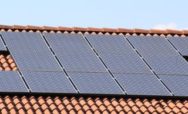
(eco)Village within a Village
The Welsh Government is embracing low-impact housing with the unveiling of its first village within a village – the Pentre Solar “eco hamlet” within the traditional, stone-walled village of Glanrhyd in Pembrokeshire. The six timber homes have solar panels capable of producing 6000 kilowatt hour per year, low energy use and a A++ energy rating.
Following the successful construction of a prototype house built by start-up Western Solar in 2013, the Welsh Government gave the company £141,000 to help create its nearby production base for the homes, which will house tenants from Pembrokeshire council’s social housing waiting list. With low energy use and access to a shared electric car, Western Solar said residents could avoid up to £2,000 a year on energy costs and consumption.
The eco hamlet was built with insulation material made from recycled paper and local Douglas and Fir wood sourced from the Gwaun Valley. Local people were hired and trained to build the homes, which cost about £100,000 each to build – comparable to a conventional build, according to Western Solar.
About 40% of the fabric of the houses is made in the factory, significantly reducing the build time; it takes only a week to make each house, and less than that to erect it. The company plans to build 1,000 homes over the next 10 years, with the help of partnerships including housing providers and investors.
Welsh Environment Secretary Lesley Griffiths said she was “delighted” to officially open the innovative housing development.
“[It is] not only providing much-needed housing for local people, it is also addressing many other issues such as energy efficiency, fuel poverty, skills development and the use of Welsh timber,” Lesley said.
Low-impact development is recognised by the Welsh Planning system as playing a key role in the transition towards a low-carbon society. Since the ‘One Development Policy’ legislation was introduced in Wales in 2010, it has been possible to build new homes in the open countryside as long as there is a clear commitment for to sustainable living, natural building techniques, and land-based livelihood.…
